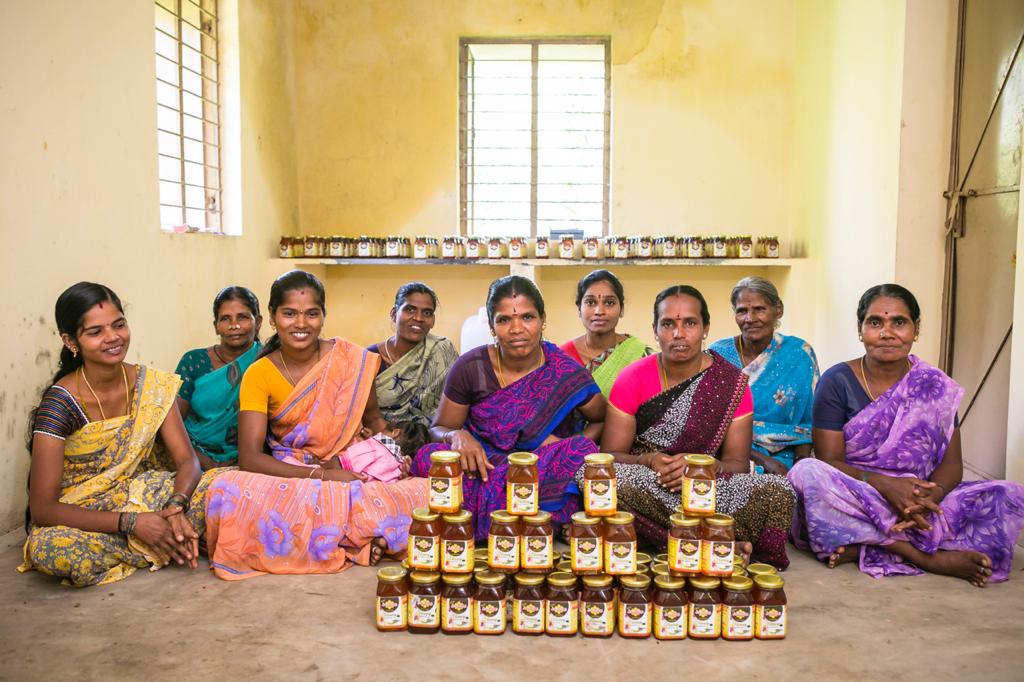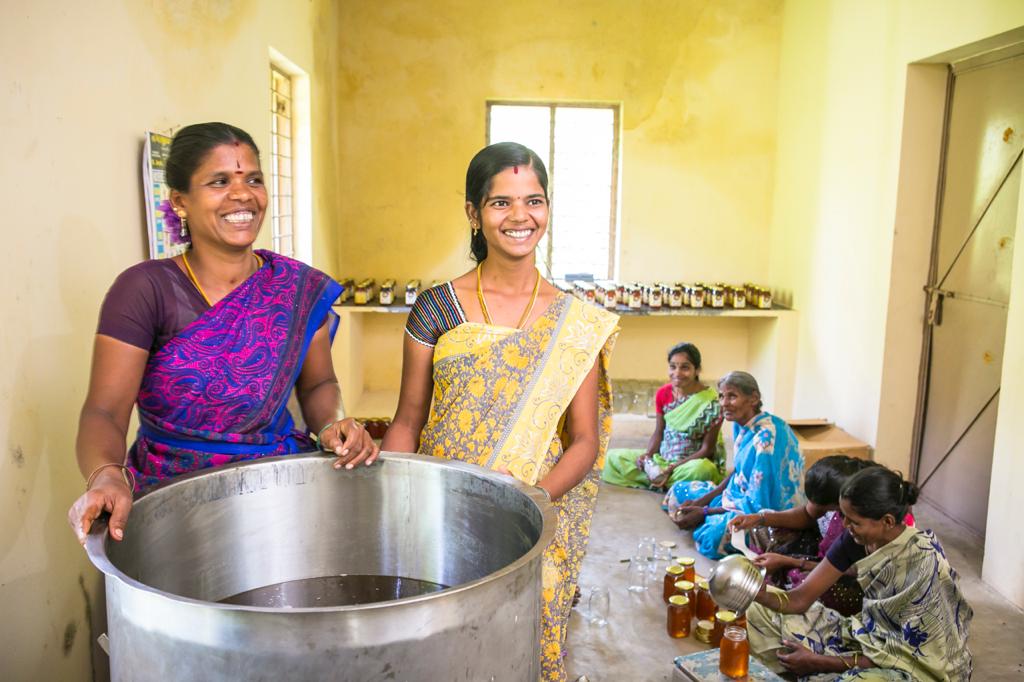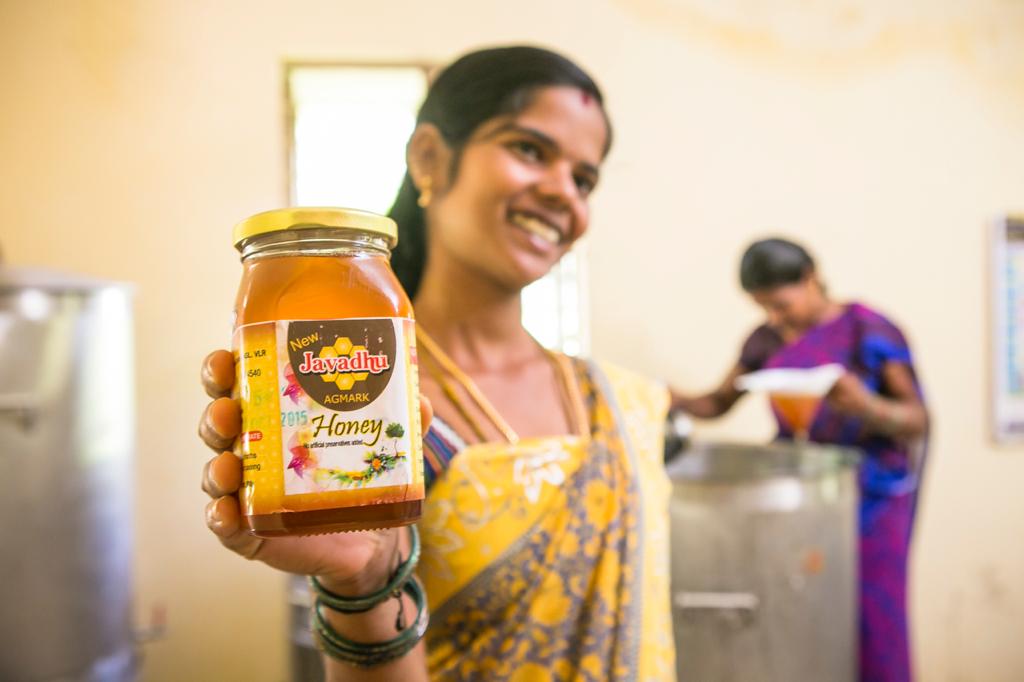Empowering Tribal Women Entrepreneurs of Javadhu Hills
Ensuring Sustainable Economic Growth

The active participation of women in social and economic activities plays an integral role in creating a sustainable future for tribal communities. They contribute significantly to the community’s welfare, conservation of forest land, education, and health. However, multiple challenges like limited access to development initiatives, lack of basic education and awareness on Government schemes due to the remote geographical set-up act as a deterrent in financial freedom of tribal women. This necessitates collaborative efforts of corporate trusts and Government institutions creating ample skill building and entrepreneurial opportunities.

One inspiring example of economic inclusion of tribal women is that of the Venkatesa Perumal Tribal Women SHG from Javadhu Hills in Tamil Nadu, a region popularly known for its herbal medicinal wealth producing raw wild honey, which is natural and pure. The entrepreneurial abilities of the women of the tribe were supported through the intervention by Srinivasan Services Trust, social arm of TVS Motor Company to sell ‘New Javadhu Honey’. The 12 members of Venkatesa Perumal Tribal Women SHG members have successfully been earning sustainable livelihood processing and selling the unique Javadhu raw wild honey. The honey is collected from local honey collectors, who skilfully collect honey, ensuring the bees are not disturbed as per harvesting process. Around 62 honey collectors benefited an average income Rs. 8000 per collector over a period of six months. The SHG members also ensure they complete quality checks and follow a rigorous cleaning and filtering process to produce New Javadhu Honey.

The women of the SHG received training on honey collection by the Tribal Cooperative Marketing Development Federation of India (TRIFED), Bangalore with support from SST. In a period of four years, about 500 tribal women from 47 tribal villages benefited from this training. In the training, beneficiaries are taught to collect honey without destroying the comb, removal of honey with hygienic method and collection of honey from comb without squeezing it.
The SHG with guidance from not only SST but the Women Development Corporation, TRIFED & District Rural Development Agency were able to get honey processing training, processing equipment, marketing aids and better infrastructure. The trust’s aim is to expand and strengthen the network of SHG’s in Javadhu Hills focusing on the growth of honey business to reach more people with such livelihood improvement programs. They will continue to guide the tribal groups with training support, medical camps to improve the health of honey collectors and help them get mediclaim insurance as per government norms.
Further to this, SST also guided the SHG to collaborate with the Tropical Institute of Ecological Science to provide honey bee boxes to selected tribal members, creating other avenues in Apiculture, allowing them to be employed and earn their livelihood. This project resulted in offering 150 honey bee boxes to 27 farmers, wherein 13 of them earn approximately Rs. 10,000 per annum. In addition, the SHG has also undertaken Honey Bee Keeping Value Chain Project funded by NABARD and implemented by SST with the aim of expanding Apiculture in Javadhu Hills. This particular project, which is in its inaugural stage, is set to cover 100 selected farmers.